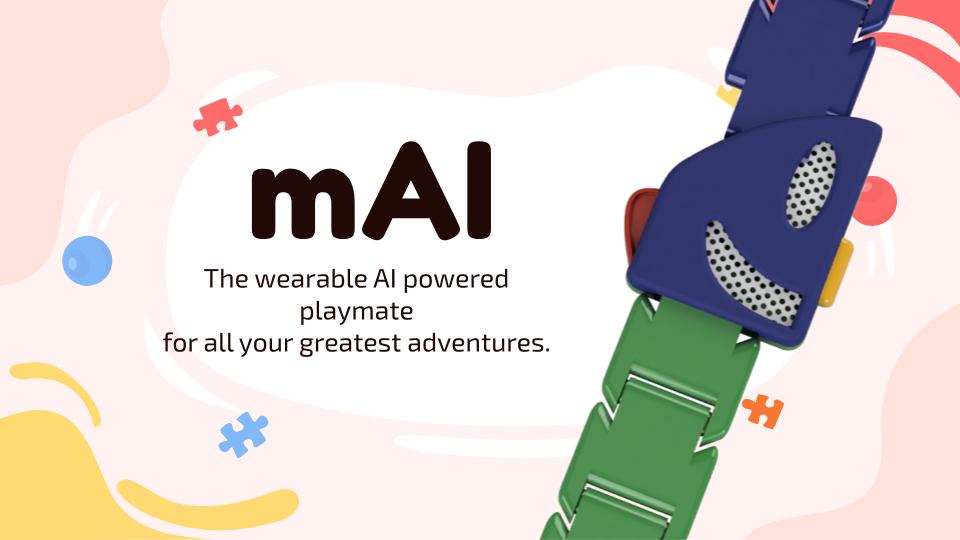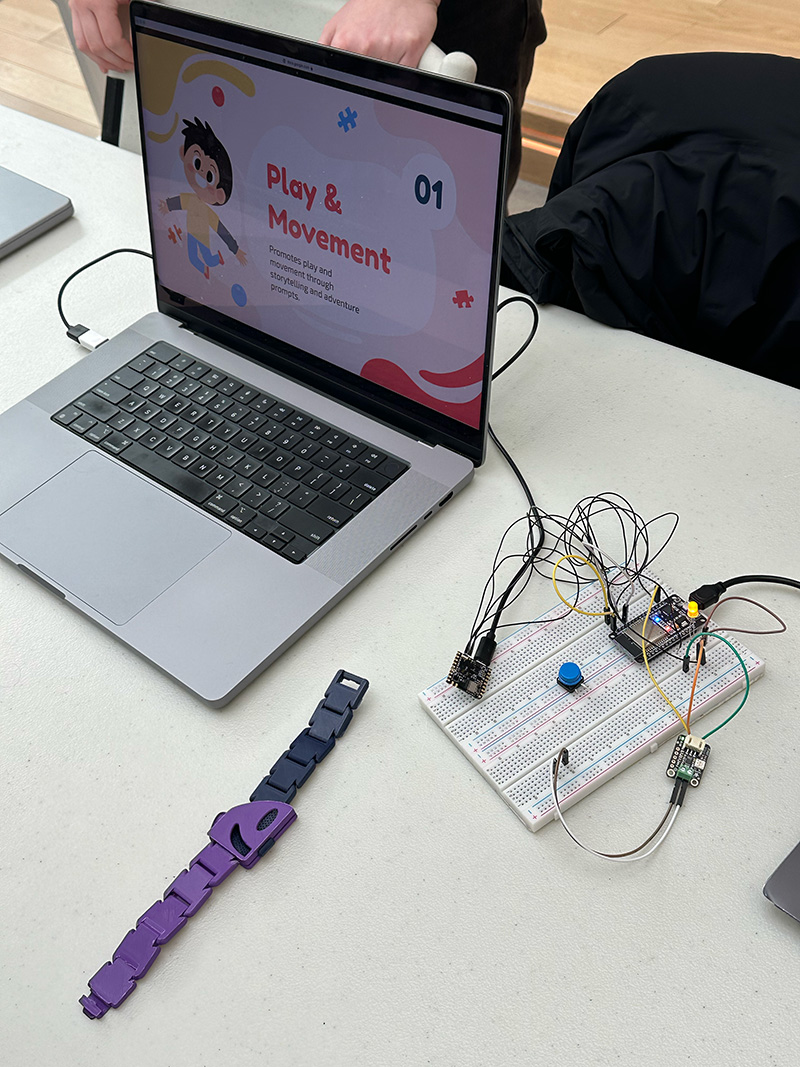Katie Lynch, David James and Lisa Lo, all graduate students from the Master of Arts in Design Engineering (MADE) program run jointly by Brown Engineering and the Rhode Island School of Design, took Best Use of Artificial Intelligence honors during February’s MakeHarvard 24-hour make-a-thon. The event included 13 teams, with more than 50 participants representing universities from across the country.
 Corporate sponsor Infosys devised the prize category for the device that best utilized artificial intelligence (AI), and many of the MakeHarvard projects incorporated AI in some way. It was Lynch, James and Lo’s mAI, a watch that uses AI to prompt imaginative play and storytelling for children, that took the prize from Infosys. The screen-less prototype smartwatch utilizes a custom language recognition model to generate real-time stories. It suggests themes such as “cowboy” or “astronaut,” then prompts the wearer with tasks and challenges that promote physical activity and fulfill objectives within the story.
Corporate sponsor Infosys devised the prize category for the device that best utilized artificial intelligence (AI), and many of the MakeHarvard projects incorporated AI in some way. It was Lynch, James and Lo’s mAI, a watch that uses AI to prompt imaginative play and storytelling for children, that took the prize from Infosys. The screen-less prototype smartwatch utilizes a custom language recognition model to generate real-time stories. It suggests themes such as “cowboy” or “astronaut,” then prompts the wearer with tasks and challenges that promote physical activity and fulfill objectives within the story.
“This was our first makeathon together,” Lynch said. “So we didn’t really know what to expect going in. There wasn’t a specific prompt, but they mentioned five things they would be judging on, and one of those was its value to society. Before diving in, we took some time to think about an issue we thought we could solve in this short amount of time.”
The trio began with a critical review of children’s toys, which quickly turned to an awareness of excessive screen time, lack of ready-made play partners, and childhood obesity statistics. They then landed on their mAI watch, which does not include a screen, but instead offers an opportunity for back -and-forth communication that co-creates imaginative play and movement through AI story generation and voice recognition.
 “You turn it on, and it gives prompts. For instance, one scenario we used a lot was to pretend you were an astronaut picking up moon rocks, or planting a flag this far away, or jumping over something – helping reimagine that play,” Lynch said.
“You turn it on, and it gives prompts. For instance, one scenario we used a lot was to pretend you were an astronaut picking up moon rocks, or planting a flag this far away, or jumping over something – helping reimagine that play,” Lynch said.
Lo said what differentiated the group was the storytelling beginning, rather than starting with a tech-centric idea. “After we knew what we wanted to do, we moved into our architecture to solve the problem,” she said. “We were given limited technology, like arduinos and ESP modules, so not the most ideal electronics for speech recognition and AI, but we managed to make it work.”
Artificial intelligence has been a running theme in MADE this year. Students studied Human-AI collaboration and visited leading design engineering companies in January to learn about how their work is changing. As part of that course, MADE students worked on an open data collaboration with the City of Boston and Harvard that will culminate in an exhibition of student work at the Museum of Science in April.
Although all three students are currently back into a busy spring semester that includes a core capstone studio that ties the 11-month accelerated master’s program together, they have not shut the door on revisiting the watch and going further with the idea. “Not only does it do word detection, but it also has an accelerometer,” said James. “In a future iteration, it could detect motion and further encourage more movement, almost like a natural exercise routine.”
As part of winning the award, the three students are fast-tracked to a summer internship interview process with Infosys. The annual MakeHarvard event gives participants just 24 hours to design, build and present their devices, with all manufacturing and construction done at Harvard’s Science and Engineering Complex Makerspace facilities using the materials provided at the site.
Matt Goisman, writer/communications manager at the Harvard John A. Paulson School of Engineering and Applied Sciences contributed to this story.